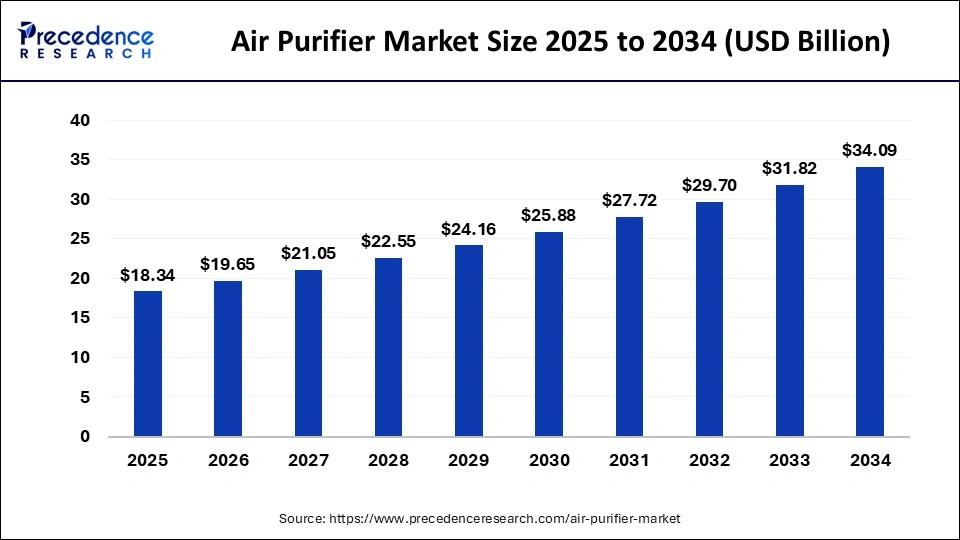Air Purifier Market Size to Attain USD 34.09 Billion by 2034
Air Purifier Market
The global air purifier market size was evaluated at USD 17.12 billion in 2024 and is predicted to attain around USD 34.09 billion by 2034 with a CAGR of 7.13%.

Get Sample Copy of Report@ https://www.precedenceresearch.com/sample/1099
Key Points
- With a 39% market share, Asia Pacific dominated the global industry in 2024.
- The HEPA technology segment recorded the largest share among all technologies in 2024.
- The commercial application segment played a crucial role in driving market growth in 2024.
Market Dynamics
Drivers
The rising awareness of airborne diseases and their impact on human health is a key factor propelling the air purifier market. Increasing cases of respiratory illnesses and allergies due to exposure to pollutants, pet dander, and mold spores have boosted consumer demand for advanced filtration systems.
The growing emphasis on indoor air quality in both residential and commercial sectors, along with workplace safety regulations, further accelerates market growth. Additionally, technological innovations in purification methods, such as electrostatic precipitators and photocatalytic oxidation, are improving the efficiency and appeal of air purifiers.
Opportunities
With the rise of smart homes and connected devices, the demand for intelligent air purifiers integrated with smart sensors and mobile applications is increasing. Manufacturers are focusing on eco-friendly and energy-efficient air purifiers, catering to the demand for sustainable solutions.
The adoption of air purifiers in public transport systems, including metro stations, buses, and airports, is also growing, creating new business opportunities. Additionally, increasing awareness campaigns and partnerships between companies and healthcare institutions are promoting the benefits of air purification systems.
Challenges
Despite the growing demand, the air purifier market faces obstacles such as high product costs and expensive filter replacements, which can deter long-term consumer investment. The varying efficiency of different filtration technologies creates confusion among buyers, affecting their purchasing decisions.
Moreover, limited standardization in product certifications and performance benchmarks poses challenges for consumers in choosing reliable air purifiers. Another challenge is the perception that air purifiers are a luxury product rather than a necessity, particularly in cost-sensitive markets.
